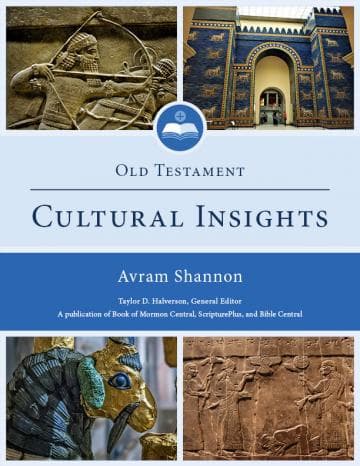Book
71 Chapters

The world of the Old Testament was highly stratified with different levels of social class. The Bible records numerous instances when the ancient Israelites used deferential speech with those viewed as socially superior. This is especially seen in speech with Jehovah.
Rather than using special pronouns, Hebrew deferential speech is marked by expressions of extreme humility. (This kind of expression is found not just in the Bible but throughout the ancient Near East.) When pleading for the city of Sodom in Genesis 18:27, Abraham called himself “dust and ashes.”
Hebrew deferential speech is also marked by referring to oneself in the third person. Joseph’s brothers used this, speaking of themselves in the third person out of deference to Joseph’s position as second to Pharaoh. Thus they said, “Thy servants are twelve brethren, the sons of one man in the land of Canaan; and, behold, the youngest is this day with our father, and one is not” (Genesis 42:13). After Joseph’s silver cup was found in Benjamin’s bag, Judah spoke using both markers of deferential speech: “Oh my lord, let thy servant, I pray thee, speak a word in my lord’s ears, and let not thine anger burn against thy servant” (Genesis 44:18). This form of deferential speech can sound obsequious and excessive to modern ears, but it represents how people spoke in the ancient biblical world.
Genesis 18:27
Genesis 19:2, 19
Genesis 33:5
Genesis 42:10–13
Genesis 44:18–30
Numbers 31:49
Numbers 32:1–5
Joshua 5:14
Joshua 9:7–11
1 Samuel 3:9–10
1 Samuel 17:32–34
1 Samuel 26:18–19
2 Samuel 7:19–29
Nehemiah 1:5–11
Moses 1:36
Abraham 2:12–13
Book
71 Chapters
Items in the BMC Archive are made publicly available for non-commercial, private use. Inclusion within the BMC Archive does not imply endorsement. Items do not represent the official views of The Church of Jesus Christ of Latter-day Saints or of Book of Mormon Central.